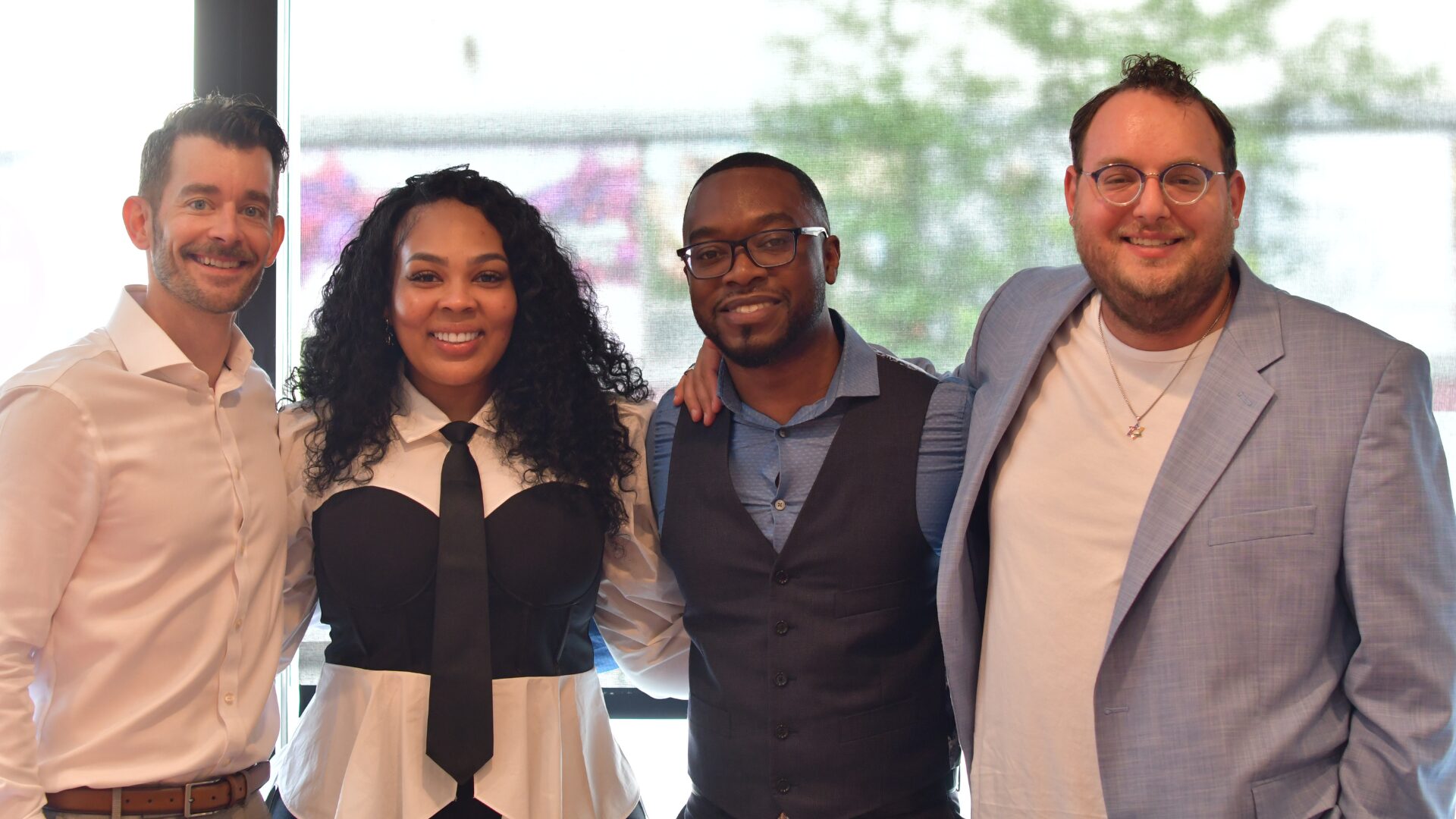As a relationship-reliant business, client consultations can make or break your success in real estate. At the June YPN breakfast, three experienced Chicagoland agents shared their strategies for conducting effective consultations that lead to lasting relationships and closed deals.
Meet the panelists here:
Through their combined experience, they provided recommendations for working with buyers, sellers and renters. Let’s dive into their wisdom and actionable advice.
Set the Stage with Systems and Tools
Amanda Stapleton of Blue Door Real Estate emphasized the importance of robust systems. “Create a system that works best for you and your business, and you have to stand on that system,” she advised. “Figure out what works for you, and make people respect them.”
For example, if you need the information from an online intake form, don’t let a family friend skip that form before booking your time for a face-to-face consultation. Uphold your systems and protect your time.
Key elements of an effective consultation system include:
- Pre-consultation questionnaires to gather key information.
- Clear protocols for communication for both casual and urgent situations (e.g. email vs. text).
- Defined next steps and expectations.
Here’s an exercise to help you create your first system: write down every piece of information you know a buyer will need during the homebuying process on sticky notes. Organize the sticky notes into chronological order. For the first and most important group of sticky notes, put that info into an intake form or questionnaire.
Leverage Technology for Efficiency
Ryan Templeton of Keller Williams ONEChicago shared his tech-savvy approach: “I love Google Forms. Every single text intro that I get, every reach-out that I do for my renters, I send out a Google form that is just a pure questionnaire. I take all the form info, and I put that into Zenlist as my tool for MLS listings. Clients love it.”
He knows that the rental market is highly dependent on deadlines and timelines; key date-based information is always included in that Google form, like their move-out date, their lease-renewal date, et cetera. Zenlist is a handy listing management tool that also syncs with MRED.
This approach allows Ryan to:
- Quickly gather essential client information.
- Efficiently manage client preferences and needs.
- Provide a user-friendly interface for clients to view listings.
Ryan’s business is primarily composed of rentals, so he values efficiency. He has scripted text templates in his phone and email to send right away after getting an inquiry from a potential client. They’re customized based on whether the person is a buyer, seller or renter.
Ryan’s strategy for turning renters into buyers also maximizes technology: “I have the deadline. I know when their lease is due, so I have the timeline right in front of me. I generally will follow up a little bit after the move-in just to make sure everything went well. When that lease is coming due, I use a system called Trello. It’s like a visual board. I have a card for every single lease expiration that’s coming due.”
His follow-up process includes:
- Checking in 3-4 months before lease expiration.
- Asking about plans to renew, move, or purchase.
- Introducing clients to lenders, attorneys and inspectors as needed.
Here’s an exercise to help you maximize your tech tools: go through your sent emails for the last year or so. What are your most consistently sent links, lists, sentences, et cetera? Can you standardize these into a pre-saved template? Identify three templates, update them now and then save them. You’re ready to go.
Understand A Client’s Readiness: Mentally & Financially
Joe Tyler Gerber of COMPASS stressed the value of asking “why” during consultations. His business works consistently with sellers, and his interview approach helps him understand the nuances of a property or client’s experience from the get-go. “Why are you moving? Why are you buying? What’s your goal?” he said. “I don’t sell houses. I sell stories and opportunities.”
Joe added that he sees his job as a REALTOR® as someone who helps their client stay true to their goals. If they’re selling their house to get closer to family, he keeps that “why” at the core of all his messaging and how he delivers information. “I strengthen their decision-making and help with staying focused,” he said.
Amanda uses her intake questionnaire to determine which of her interested buyers are financially ready to buy a home. If someone isn’t ready from a financial perspective, she has preferred partners like lenders to introduce and help the person understand where they need to get to. This careful collection of information protects her time and her business flow of qualified leads.
Set Expectations ASAP
Given the competitive, low-inventory market, it’s crucial to educate your clients by setting realistic expectations.
Ryan shared his approach with renters. He knows that the rental market in Chicago will require quick decision-making in a high-pressure situation, so he ensures his renters understand that before they take a step out the door.
“Setting the expectation when people will send me the most beautiful property… we all know there’s going to be 100 people at that open house,” he said. “So I educate them on what this process is like, how I’ve dealt with it in the past, and that if they’re not ready to go over asking price… kiss it goodbye, just move on to the next one.”
Here’s an exercise to help you set expectations in a way that feels organic to you: open a blank document and list out the step-by-step journey for a renter, buyer and seller. As you do, reflect on some of your past transactions and ask yourself where these phases faced hiccups. Under each phase or step in that journey, list out three things:
- What clients often ask or misunderstand.
- What surprises or frustrates them.
- What agents wish they had communicated better.
For each phase, script some dialogue you can use to proactively address these emotionally-charged moments; you can use an AI tool like ChatGPT or write whatever feels natural to you. Remember, avoid using jargon or industry terms! You now have a solid base for a “what to expect” guide for every type of client.
Showcase Your Value Proposition
How are you differentiating yourself from the many agents working in Chicago and the surrounding areas? The panelists stay true to what they enjoy about their work and what they consider most important to focus their energies.
Amanda shared: “When I speak to [my clients] I say, hey, I am a very untraditional REALTOR®. I like to go above and beyond when it comes to marketing. I like to focus on elevated marketing. I want the presentation to be flawless. I just want them to see I’m willing to go above and beyond, but also make your property look very good with my marketing plan.”
Joe has created a one-sheet about himself. It has statistics about his days on market, how many listings he’s sold at or above list price, other key data that demonstrate his success as well as anything else that makes him more approachable as a person, not just a licensed agent.
Here’s an exercise to develop or hone your value proposition: set aside time to journal or document your thoughts on these prompts:
- What have past clients or your colleagues say you’re great at? When have you gone above and beyond for someone?
- If you’re newer and don’t have client feedback yet, imagine: What do you want clients to say about you after closing?
- Send a simple question to your managing broker, your peers or your past clients, and ask: If you had to describe what it’s like to work with me — or why you’d refer me — in one sentence, what would you say?
Highlight or make note of recurring themes or angles. Then, challenge yourself to put this into a statement. “I help [type of client] feel [emotion/result] by [your approach/secret sauce]. Clients choose me because [what sets you apart].”
The Bottom Line
As the discussion moderator, LaQuan Henley, challenged in the opening of the breakfast, “Unlock your phone and hand it to the person next to you. How did that feel? That’s how vulnerable and anxious your client feels when they agree to work with you on what is likely the biggest purchase of their lives. Your consultations should recognize what that feels like and help them feel like you’re there to support them.”
Successful client consultations in real estate require a blend of systems, technology, empathy and market knowledge. By implementing these strategies and continuously refining your approach, you can position yourself as one of those top-performing agents who consistently close deals and build lasting client relationships.










